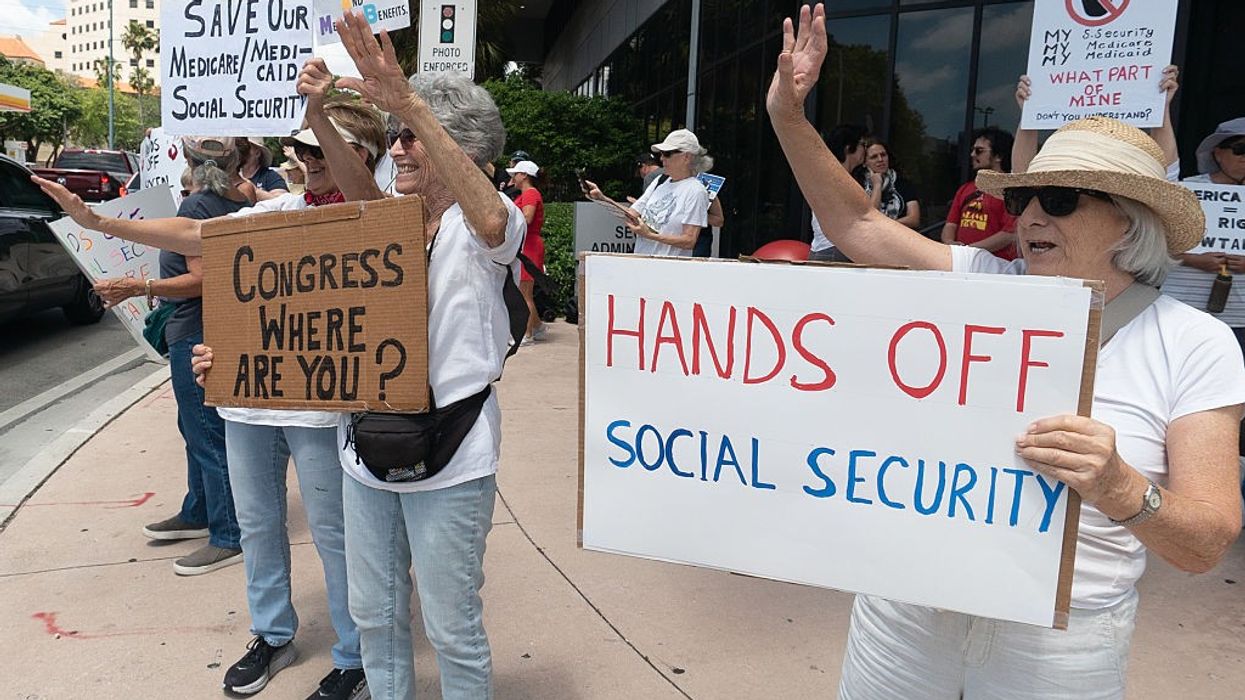As the advocacy group Maine AllCare reported, the Pan Atlantic 67th Omnibus poll found that 63% of Mainers support Medicare for All, the proposal to transition the US to a system like that of other wealthy countries, with the government expanding the existing Medicare program and guaranteeing health coverage to all.
Those results bolster the findings of More Perfect Union in October, which found 72% of Mainers backing Medicare for All, and of Data for Progress, which found last month that 65% of all Americans—including 78% of Democratic voters—support a "national health insurance program... that would cover all Americans and replace most private health insurance plans.”
Even more recently, a Pew Research survey released last week found that 66% of respondents nationwide said the government should guarantee health coverage.
Platner has spoken out forcefully in support of Medicare for All, saying unequivocally last month that the proposal "is the answer" to numerous healthcare crises including the loss of primary care providers in many parts of the country and skyrocketing healthcare costs.
He made the comments soon after Mills said at a healthcare roundtable that "it is time" for a universal healthcare system, but did not explicitly endorse Medicare for All.
Maine AllCare noted that the latest polling on Medicare for All in the state comes as Maine "is on the verge of a multi-pronged healthcare crisis" due to Republican federal lawmakers' refusal to extend Affordable Care Act subsidies—which is projected to significantly raise monthly premiums for many Maine families as well as millions of people across the country. People in Maine and other states are also bracing for changes to Medicaid, including eligibility requirements.
Those changes "alongside long-standing affordability and access gaps, are projected to cost Maine billions and trigger deep operating losses in already strained hospitals," said Maine AllCare.
The group emphasized that that the Republican budget reconciliation law that President Donald Trump signed in July is projected to have a range of economic impacts on Maine, including a $450 million decline in statewide economic output, the loss of 4,300 state jobs, and the loss of $700 million in revenue at the state's hospitals due to Medicaid cuts.
“Maine needs a sustainable and universal healthcare system now. Poll after poll show people want Medicare for All. Our leaders can let the current health system continue collapsing—harming families, communities, and the economy of our state—or they can meet the moment and fight like hell to enact change that protects both the people and the future of the state," said David Jolly, a Maine AllCare board member. "That is the work Mainers elected them to do and that is what they must do now.”
Despite the broad popularity of the proposal to expand the Medicare program to everyone in the US—a system that would cost less than the current for-profit health insurance system does, according to numerous studies—supporters, including the 17 cosponsors of the Medicare for All bill in the US Senate and the 110 cosponsors in the US House, continue to face attacks from establishment politicians regarding the cost and feasibility of the proposal.
On Monday, Rep. Ro Khanna (D-Calif.) explained to Fox News anchor Maria Bartiromo how the Affordable Care Act that was passed by the Democratic Party is "not the solution" to the country's healthcare crisis, because it keeps in place the for-profit health insurance industry.
"The solution, as everyone knows, in my view, who has studied this, is Medicare for All," said Khanna. "People should have national health insurance. Healthcare is a human right. You should not be subject to these private insurance companies that have 18% admin costs, that are making billions of dollars in profits."
Sen. Jeff Merkley (D-Ore.) also spoke out in favor of the proposal, pointing to the recent Data for Progress poll that showed 65% of Americans and 78% of Democrats backing Medicare for All.
"Healthcare is a human right. That’s why we need Medicare for All," said Merkley. "We need to simplify our system and make sure folks can get the care they need, when they need it. And the American people agree!"



